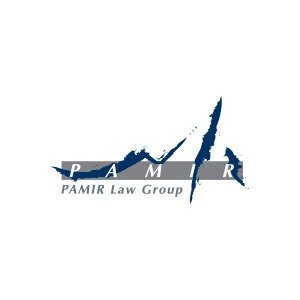Best General Litigation Lawyers in Taiwan
Share your needs with us, get contacted by law firms.
Free. Takes 2 min.
Or refine your search by selecting a city:
List of the best lawyers in Taiwan
About Litigation Law in Taiwan
Litigation in Taiwan is a structured legal process where parties engage in a lawsuit through the court system to resolve disputes. The judicial system in Taiwan is characterized by various levels of courts, including district courts, high courts, and the Supreme Court, each serving different roles in the litigation process.
The legal framework in Taiwan is based on civil law traditions with significant influence from both German and Japanese legal systems. The procedures in litigation cases are primarily governed by the Code of Civil Procedure. Additionally, Taiwan's efficient legal system emphasizes mediation and arbitration as alternative dispute resolution methods to reduce the burden on the courts and expedite case resolution.
Why You May Need a Lawyer
There are many scenarios wherein individuals may require legal assistance concerning litigation in Taiwan. These include:
- Disputes over contracts, such as breach of contract or enforcement of contractual terms.
- Family law matters, including divorce, child custody, and alimony issues.
- Property disputes, whether involving real estate transactions or intellectual property rights.
- Personal injury claims resulting from accidents or negligence.
- Employment-related issues, such as wrongful termination or workplace discrimination.
- Corporate disputes, including shareholder disagreements and business dissolutions.
- Debt recovery efforts or insolvency proceedings.
In these situations, a qualified lawyer can provide expertise in navigating the complexities of the law, ensuring proper representation, and advocating for your rights and interests effectively.
Local Laws Overview
The litigation process in Taiwan is governed by several key legal principles and statutes, including:
- Code of Civil Procedure: This serves as the primary procedural guideline for litigations, detailing how cases should be filed, handled, and adjudicated.
- Alternative Dispute Resolution: Mediation and arbitration are encouraged as means to resolve disputes outside of a court setting, with legal provisions supporting these processes.
- Statute of Limitations: There are specific time limits within which legal action must be initiated, varying depending on the type of case.
- Jurisdiction: Various levels of courts in Taiwan handle different types of cases based on severity and nature, with district courts handling initial filings and higher courts addressing appeals.
- Evidence Law: The rules surrounding what constitutes admissible evidence are critical in litigation, influencing the outcome substantially.
Frequently Asked Questions
What is the first step in initiating a lawsuit in Taiwan?
The first step in initiating a lawsuit is to file a complaint with the appropriate district court. The complaint should outline the legal basis for the suit, the facts of the case, and the specific remedies being sought.
How long does a standard litigation process take in Taiwan?
The timeline for litigation can vary significantly based on the complexity of the case, whether it is contested, and the court's schedule. A simple case might take several months, whereas more complex cases may extend to a few years.
Can I represent myself in court, or do I need a lawyer?
While individuals can represent themselves in court, having a lawyer is advisable due to the complexities of legal procedures and the benefits of professional advocacy.
Are court proceedings in Taiwan open to the public?
Yes, most court proceedings are open to the public, although certain exceptions apply for sensitive cases, such as those involving minors or confidential business information.
What are the costs associated with filing a lawsuit?
Costs can include court fees, attorney fees, and other administrative expenses. It is best to consult with a legal professional to get a detailed estimate based on your specific case.
How are judgments enforced if I win my case?
A judgment can be enforced through various means, such as wage garnishments, property liens, or through court orders directing payment of damages.
Is there an appeal process for court decisions in Taiwan?
Yes, parties can appeal certain decisions to higher courts if they believe there has been a legal or procedural error.
What role does mediation play in litigation?
Mediation is encouraged in Taiwan as a way to resolve disputes amicably and potentially avoid costly and lengthy court battles.
How does the statute of limitations affect my case?
The statute of limitations restricts the time period during which you can file a lawsuit. It varies by case type, and filing after the limit may result in dismissal.
Are there any alternative means to resolve disputes apart from litigation?
Yes, apart from mediation, arbitration is a common alternative, where an arbitrator makes binding decisions to resolve disputes outside of the court system.
Additional Resources
For further assistance and information on litigation in Taiwan, you might find the following resources helpful:
- Judicial Yuan: The official website provides information on court procedures and legal resources.
- Legal Aid Foundation: A nonprofit organization offering legal services to those in financial need.
- Taiwan Bar Association: Offers a directory of licensed lawyers and legal practitioners in Taiwan.
- Mediation Centers: Numerous government and private mediation centers offer services to facilitate conflict resolution through mediation.
Next Steps
If you require legal assistance for litigation purposes in Taiwan, consider the following steps:
- Determine the nature of your legal issue and research basic information relevant to your case.
- Consult with a qualified attorney who specializes in the area of law relevant to your litigation need. You can reach out to the Taiwan Bar Association for recommendations.
- Gather all necessary documentation and evidence related to your case to prepare for any legal proceedings.
- Explore alternative dispute resolution options such as mediation and arbitration to potentially resolve the issue outside the courtroom.
- Prepare for potential court appearances by understanding the procedural requirements and your responsibilities as a litigant.
Following these steps can put you on the right path to effectively address your legal concerns in Taiwan and achieve a satisfactory resolution to your dispute.
Lawzana helps you find the best lawyers and law firms in Taiwan through a curated and pre-screened list of qualified legal professionals. Our platform offers rankings and detailed profiles of attorneys and law firms, allowing you to compare based on practice areas, including General Litigation, experience, and client feedback.
Each profile includes a description of the firm's areas of practice, client reviews, team members and partners, year of establishment, spoken languages, office locations, contact information, social media presence, and any published articles or resources. Most firms on our platform speak English and are experienced in both local and international legal matters.
Get a quote from top-rated law firms in Taiwan — quickly, securely, and without unnecessary hassle.
Disclaimer:
The information provided on this page is for general informational purposes only and does not constitute legal advice. While we strive to ensure the accuracy and relevance of the content, legal information may change over time, and interpretations of the law can vary. You should always consult with a qualified legal professional for advice specific to your situation.
We disclaim all liability for actions taken or not taken based on the content of this page. If you believe any information is incorrect or outdated, please contact us, and we will review and update it where appropriate.
Browse general litigation law firms by city in Taiwan
Refine your search by selecting a city.












